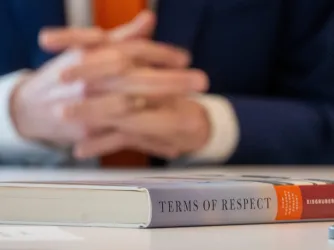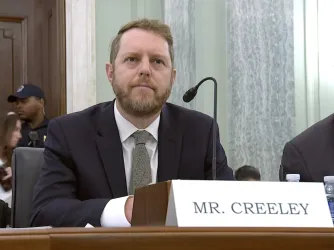Table of Contents
Could 'The Vagina Monologues' Be Harassment at Claremont McKenna?

The Vagina Monologues, Eve Ensler’s iconic feminist production, has been called “the most important piece of political theater of the last decade.” It is regularly performed by student groups on college campuses across the country and has inspired large-scale movements to stop violence against women throughout the world. And yet, it is not difficult to imagine that overly broad university harassment policies could force administrators and students alike to reconsider holding productions of the play on their campuses.
As FIRE has noted multiple times, the Supreme Court has established a clear standard for actionable student-on-student harassment on college campuses. In Davis v. Monroe County Board of Education (1999), the Court held that schools must address peer harassment when it is, targeted, discriminatory, and “so severe, pervasive, and objectively offensive that it effectively bars the victim’s access to an educational opportunity or benefit.”
In California, the state legislature passed California Education Code § 94367, which protects the First Amendment rights of students at all non-religious colleges and universities in the state. The “Leonard Law,” as it is informally known, thus guarantees free expression to students at private institutions like Claremont McKenna College, where I will be a junior this fall. With respect to the Davis standard for peer harassment, FIRE believes that it can be applied consistently with free speech mandates, striking an appropriate balance between freedom of expression and the need to prevent discriminatory harassment. Moreover, in CMC’s case, the college expresses support for the right to free speech within its Guide to Student Life.
Nevertheless, FIRE has rated CMC’s harassment policies as “yellow light” policies, meaning that they are ambiguous enough to “encourage administrative abuse and arbitrary application.” While CMC has worked to include language in its policies that is similar to the Davis standard, it also includes broad language and vague examples of what constitutes harassment. It is these particular aspects of the speech code that threaten controversial expression like The Vagina Monologues on CMC’s campus. For example, if sex-related “gestures” are considered harassment, then students and administrators can easily claim that student-actresses actively mimicking orgasm sounds and gyrations is unacceptable at CMC. Similarly, the monologue “Reclaiming Cunt” encourages women to take back the word “cunt,” but in doing so uses numerous sexual “slurs” and “jokes”—additional examples of discriminatory harassment according to CMC’s policy. Essentially, these broad and vague policies too easily open the door for speech and conduct that is not sexual harassment to be subject to complaints from other students, and possibly even punishment by the college.
When I contacted Devon MacIver, an Assistant Dean of Students at CMC who worked closely with the students holding the performance of The Vagina Monologues at CMC, he responded that “context is always a critical issue in evaluating free speech issues,” and that “there was never really any question that the content implicated the harassment policy.”
While I personally appreciate the CMC administration’s openness to the ideas presented in The Vagina Monologues, this mindset makes me even more hesitant regarding broad harassment policies. The objectivity of the Davis standard allows students to determine what is permissible and what is not, while CMC’s policies leave students wondering which contexts will be deemed appropriate by administrators. Would an outdoor public performance of the play be as protected as an indoor performance? What would happen if a campus tour group were to walk by during the performance? Further, college administrations often claim to be very open to free speech, but waver under pressure from students and the public. The open-ended questions surrounding the application of CMC’s policies leave me wondering exactly how much my freedom of expression is protected on campus, and should leave other students unsatisfied as well.
In addition to the possibilities for censorship of student performances, these types of yellow light policies pose further problems in terms of the mindset they create. Entering students may quickly glance at these guides and assume that they align with CMC’s “profound commitment to the free expression and testing of ideas.” This statement helps create a false sense of security among students who are unaware of the extent to which CMC can still limit their freedom of expression on campus. And as a result, students are increasingly and unknowingly subject to the whims of their peers and the arbitrary oversight of college administrators.
Due to the extent to which these vague policies can limit free speech for students, I encourage CMC and other schools to set an example and formulate harassment policies that more closely adhere to the Davis standard. Doing so will allow CMC to fulfill two responsibilities of all institutions of higher education: It will prohibit true discriminatory harassment while also ensuring that students can continue speaking freely without fear of punishment.
Siddharth Mandava is a FIRE summer intern.
Recent Articles
Get the latest free speech news and analysis from FIRE.

Princeton president misunderstands FIRE data — and campus free speech

The global free speech recession

What I told the Senate Commerce Committee about 'jawboning'
